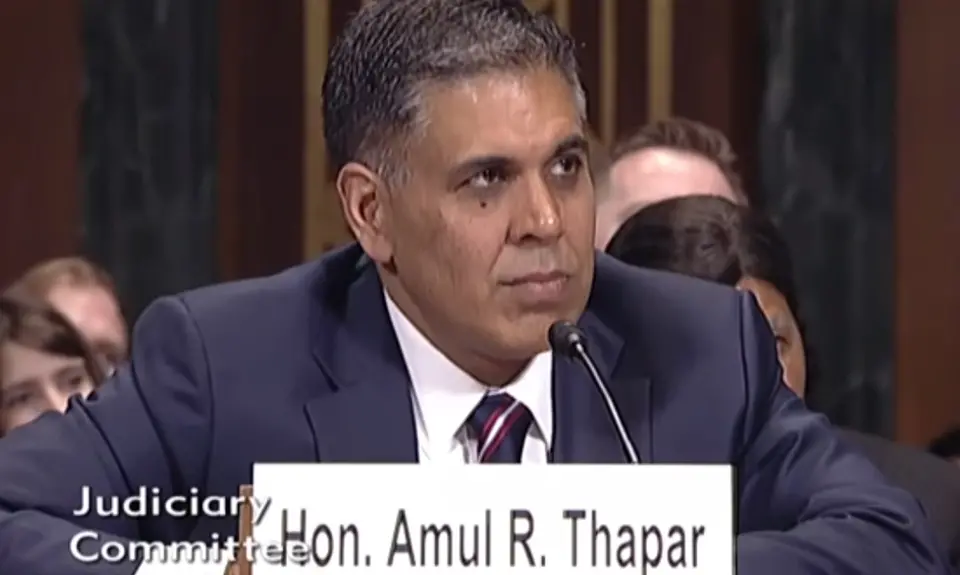“Confirmed Judges, Confirmed Fears” is a blog series documenting the harmful impact of President Trump’s judges on Americans’ rights and liberties. Cases in the series can be found by issue and by judge at this link.
Trump 6th Circuit judge Amul Thapar cast the deciding vote to affirm a lower court order dismissing a woman’s claim that police improperly used excessive force in shooting and killing her fiancé. Judge Karen Nelson Moore dissented and explained that the case should have been presented to a jury rather than being dismissed on qualified immunity grounds. The December 2019 case is Reich v. City of Elizabethtown.
Amanda Reich was driving her fiancé Joshua Blough to a mental health treatment facility, where he had agreed to go after a mental health evaluation and several previous suicide attempts. When they stopped at a traffic light, Blough, who was diagnosed with schizophrenia and suffered from paranoia, got out of the car with a knife, would not get back in, and walked away to an open field. Reich did not think Blough was a threat to himself or others, but was concerned that he might be perceived that way and so called 911.
When police officers arrived, they agreed that it would be better for Reich to try to get Blough back in her car due to his paranoid state. After she was unable to do so, the police ordered him to put the knife down. Reich maintained that Blough was 20 to 30 feet away from the officers and “was turning to run away” from them. The police claimed that he was closer and was approaching them. But there was no dispute about what happened next: two officers shot and killed Blough.
Reich filed a wrongful death suit against the officers and their employer, contending that they had used excessive force in shooting and killing Blough. The district court granted summary judgment in favor of the officers based on qualified immunity. In a 2-1 decision in which Thapar was the deciding vote, the Sixth Circuit affirmed.
Judge Karen Nelson Moore strongly dissented. Accepting Reich’s version of the facts, as “we must at this stage of the litigation,” Moore explained, “any reasonable police officer should have known that shooting Blaugh violated clearly established Sixth Circuit case law.” Accordingly, Judge Moore went on, the case should have been submitted to a jury to decide the factual issues.
Specifically, Judge Moore criticized the majority for relying on a “one-sided rendering” of the facts that favored the police’s view, even though the majority had acknowledged that courts must “construe the evidence and draw all reasonable inferences in favor” of the party seeking to avoid summary judgment and take the case to trial. Previous Sixth Circuit decisions under “materially similar” circumstances, she went on, established that “reasonable police officers do not shoot non-compliant persons brandishing knives when they are not advancing toward another person in the immediate area,” even if they are “mentally ill, suicidal, and/or yelling threats.” In such situations, Moore wrote, it was clearly wrong to hold Reich and similar victims to an “impossibly high standard” where they must “dredge up a mirror-image case” in order to have “any hopes of surviving a qualified-immunity challenge” and bringing their case to a jury.
Police violence most disproportionately affects African Americans, but people with untreated mental illnesses are also more likely to be killed by law enforcement. Police officers should face consequences for violence and unjustifiable homicides, and the families of victims of police violence should have the opportunity to seek justice for the senseless and devastating loss of their loved ones. But based on the majority decision in which Thapar was the deciding vote, however, Amanda Reich will have no such opportunity.
